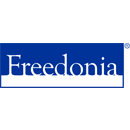News / Business
US Demand for Disposable Medical Supplies to Exceed $46 Billion in 2016

US demand for disposable medical supplies is forecast to increase 4.3 percent annually to $46.7 billion in 2016. Growth will be promoted by an expanding volume of patient care activity spurred by aging demographic patterns, a rising incidence of diseases and disorders, and the extension of health insurance coverage by the Affordable Care Act of 2010 (if left unmodified and phased in according to schedule). Demand for disposable medical supplies will also build upward momentum as hospitals, outpatient facilities and other health care establishments adopt stricter infection prevention safeguards to meet standards recommended by the Centers for Disease Control and Prevention (CDC) and the Joint Commission on the Accreditation of Healthcare Organizations (JCAHO). These and other trends, including market share and product segmentation, are presented in Disposable Medical Supplies, a new study from The Freedonia Group, Inc., a Cleveland-based industry market research firm.
Drug delivery devices will remain the largest and fastest growing group of disposable medical supplies. Growth will reflect an expanding number of chronic care patients who require surgery or continuous therapy. This trend, coupled with the introduction of new higher value-added, safety enhanced products, will boost demand for prefillable syringes and inhalers, intravenous catheters, oxygen therapy disposables, hemodialysis bloodlines and peritoneal dialysis kits.
Demand for wound management supplies will reach $10.1 billion in 2016. Tissue sealants composed of polymers and bioengineered substances, along with alginate, foam, collagen and growth factor wound dressings, will post the fastest gains based on safe and effective healing properties.
Class IV surgical drapes and gowns will net the strongest sales gains among nonwoven medical textiles as infection prevention safeguards are upgraded by hospitals and ambulatory surgery centers. Disposable face masks will also fare well in the marketplace, benefiting from routine use by medical providers in direct contact patient procedures. Among other disposable medical supplies, blood glucose test strips -- along with surgical, diagnostic and urinary catheters -- will realize the fastest growth in demand. An expanding number of diabetics engaging in self-testing will boost sales of blood glucose test strips. A rising prevalence of heart conditions will promote the increasing use of angiography and angioplasty catheters. The market for urinary catheters will benefit from expanded Medicare coverage for intermittent drainage products needed by chronic incontinence patients.
The Freedonia Group is a leading international business research company, founded in 1985, that publishes more than 100 industry research studies annually. This industry analysis provides an unbiased outlook and a reliable assessment of an industry and includes product segmentation and demand forecasts, industry trends, demand history, threats and opportunities, competitive strategies, market share determinations and company profiles.
